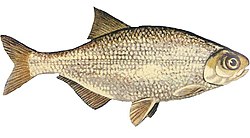| Campylomormyrus | |
|---|---|
 | |
| Campylomormyrus elephas | |
| Scientific classification | |
| Domain: | Eukaryota |
| Kingdom: | Animalia |
| Phylum: | Chordata |
| Class: | Actinopterygii |
| Order: | Osteoglossiformes |
| Family: | Mormyridae |
| Genus: | Campylomormyrus Bleeker, 1874 |
| Type species | |
| Mormyrus tamandua Günther, 1864 | |
Campylomormyrus is a genus of elephantfish in the family Mormyridae. [1]



